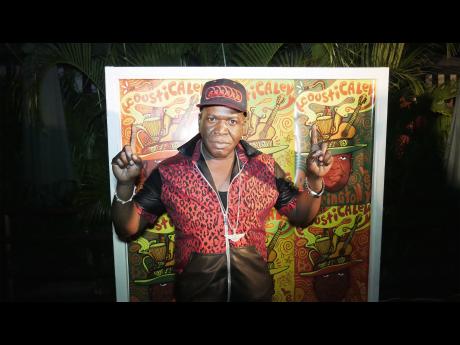Artistes Sing 'Christmas Carols' To A Different Tune
For many persons, Christmas is a season of love and kindness, however, dancehall artistes may not have got that memo as it relates to what the season is about, as the music released during the festive season normally possess themes of war and bitter rivalry.
While some entertainers have managed to show their softer side over the Christmas period by hosting numerous charity events and treats islandwide, the lyrics to some of the songs released during the season paint a different picture.
Dancehall and reggae music have long developed reputations for going against many accepted norms in society, but do they take it too far with some of the horrid remakes of the season's most popular carols?
One cannot help but wonder why artistes would go as far as to sample Christmas songs replacing words like "we wish you a merry Christmas" with "we wish you a shelly Christmas, everybody dead when dis bus" as in the case of Tommy Lee Sparta's Shelly Christmas, released by UIM Records in 2011.
Shelly Christmas went on to become one of the more popular 'dancehall Christmas' songs of 2011, the success of which led the controversial deejay to release a follow-up to the record titled Kratos Shelly Christmas Part 2. For this effort, Tommy Lee Sparta samples another popular Christmas carol, What Child Is This? Said to have been written by William Chatterton Dix, in 1865.
The original lines written by Chatterton Dix in the carol, What Child Is This? Are as follows:
"What Child is this who lay to rest
On Mary's lap is sleeping?
Whom angels greet with anthems sweet,
While shepherds watch are keeping."
blatant contrast
However, to say the least, Tommy Lee Sparta's version of the song is a blatant contrast, as the lyrics tells absolutely no tale about the birth of Jesus Christ. Using the same melody as the Chatterton Dix carol, Tommy Lee Sparta sings:
"We walk with sin we only believe inna killing
in life real life we love take bwoy life
we murder bwoy, shoot out by night
the rifle wi buss loud
dem soul haffi run een."
Some supporters of '90s dancehall, as well as critics of Tommy Lee Sparta, might be quick to assume that he is the protagonist behind songs of this nature. However, even iconic dancehall artiste Bounty Killer ventured that route during the glorious '90s with the release of Run Come Up inna Mi Magnum, which borrowed the melody of We Wish You a Merry Christmas.
Dancehall further avoided the Christmas spirit of kindness during the climax of the controversial Gully vs Gaza feud, with both Mavado and Vybz Kartel opting to propel their feud into the festive season, using modified Christmas carols as their ammunition. Mavado's Gully Christmas featured Flexx and Savage, while Vybz Kartel's Gaza Christmas featured Blak Ryno. Both songs were quite popular during the Christmas season, despite lewd lyrics with aggressive messages.
less receptive to carols
When contacted by The Sunday Gleaner, Savage who was a co-writer on Mavado's Gully Christmas, said the dancehall versions to Christmas songs are not to be taken literally. He also explained that persons from the lower class are less receptive to Christmas carols because poverty is always lingering at their doorsteps.
"Dancehall is just dancehall and it comes from the heart of the ghetto, so we celebrate Christmas the gangster way. Ghetto youths don't see no barrel nor Santa because it look like him only guh uptown ... we can't relate to the carols which speak about gifts, Santa, and snow that you see on the TV, so we just go hardcore with our own remixes," he said.
He also said Sting helped to transform the festive season into a season of lyrical warfare due to the annual clashes.
"The artistes are usually preparing for Sting at this time of the yea,r and you know the clashes cause lyrical confrontations. So artistes always transform carols into war songs because they think it's being creative. It's not really a deliberate disregard for Christmas. It's just coincidence that the war season falls during the festive season," Savage explained.
Iconic record producer/manager turned Christian Tommy Cowan, also shared his views. He said reggae/dancehall artistes have been toying with Christmas carols way before the '90s. However, the veterans did so in a more respectable and acceptable manner, he said, singling out songs like Barrington Levy's, I Saw Mommy Kiss A Dreadlocks (1981) and Jacob Miller's, Natty Christmas released in (1978).
Cowan, who also penned the single, Santa Claus (Do You Ever Come To The Ghetto), told The Sunday Gleaner, that while he clearly understands why some dancehall artistes are apprehensive towards Christmas carols, no excuse should be made for releasing explicit and aggressive content, especially when it involves the remake of an otherwise positive song intended to evoke joy.
"We produced and released Christmas songs too, but not with a violent content. That is just unacceptable because what we made of the carols was more like social commentary. Christmas is one of those seasons that we should continue to hold to a high moral standard," Cowan said.
Performed by his wife Carlene Davis, Santa Claus (Do You Ever Come To The Ghetto) sees Cowan questioning where is the poor man's Christmas. Some of the lyrics go:
'Santa Claus do you ever come to the ghetto
do you ever wonder why we suffer so.
Santa we would like to see how your reindeer go
...we ain't gonna fuss we ain't gonna fight.
Where are the presents that you brought for us?'



